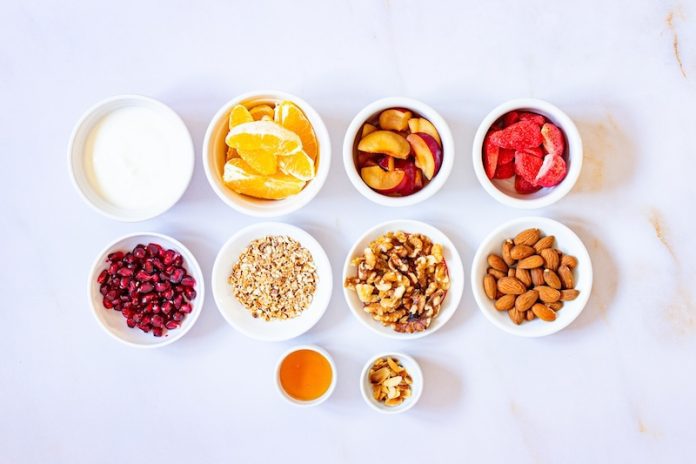
Digestive health plays a vital role in our overall well-being. When our digestive system is happy, we tend to feel better and enjoy life to the fullest. One key player in achieving optimal digestive health is dietary fiber.
In this review, we’ll explore the impact of a fiber-rich diet on our digestive well-being, demystify its benefits, and discuss how simple dietary changes can lead to a happier gut.
Dietary fiber is a type of carbohydrate found in plant-based foods. It is not digested or absorbed by our bodies, but it plays a crucial role in maintaining digestive health.
There are two main types of dietary fiber: soluble and insoluble. Soluble fiber dissolves in water and forms a gel-like substance, while insoluble fiber remains unchanged as it moves through the digestive tract.
Research Evidence
Let’s dive into the science-backed benefits of a fiber-rich diet:
- Digestive Regularity: Fiber acts as nature’s broom, helping to prevent constipation by adding bulk to our stools and softening them. This promotes regular bowel movements, reducing discomfort and the risk of developing hemorrhoids.
- Gut Microbiome: A fiber-rich diet provides nourishment for the trillions of microorganisms in our gut, collectively known as the gut microbiome. A balanced gut microbiome contributes to better digestion and a healthier immune system.
- Diverticular Disease: Diets high in fiber have been linked to a lower risk of diverticular disease, a condition characterized by the formation of pouches in the colon wall. Fiber helps prevent these pouches from forming and reduces the risk of complications.
- Irritable Bowel Syndrome (IBS): While fiber can exacerbate symptoms in some individuals with IBS, it can be beneficial for others. Soluble fiber sources like oats and psyllium may help alleviate symptoms, while insoluble fiber sources might worsen them.
- Colon Health: A high-fiber diet has been associated with a reduced risk of colon cancer. Fiber’s ability to promote regular bowel movements and bind potential carcinogens in the colon may contribute to this protective effect.
- Weight Management: Fiber-rich foods are often low in calories and provide a feeling of fullness. This can aid in weight management by helping us control our appetite and reduce calorie intake.
- Blood Sugar Control: Soluble fiber can slow the absorption of sugar, leading to improved blood sugar control in individuals with diabetes.
- Heart Health: Fiber has a beneficial effect on heart health by reducing LDL cholesterol levels. A diet rich in fiber may help lower the risk of heart disease.
How to Incorporate More Fiber into Your Diet
Now that we’ve highlighted the advantages of fiber, let’s discuss some practical tips to increase your daily intake:
- Whole Grains: Opt for whole grain bread, pasta, rice, and cereal over refined grains.
- Fruits and Vegetables: Aim to fill half your plate with fruits and vegetables at every meal.
- Legumes: Add beans, lentils, and chickpeas to soups, stews, and salads.
- Nuts and Seeds: Sprinkle flaxseeds or chia seeds on yogurt or oatmeal, and snack on almonds or walnuts.
- High-Fiber Snacks: Keep snacks like popcorn, whole fruit, or raw vegetables on hand.
- Read Labels: When shopping, check food labels for fiber content, and choose products with higher fiber content.
Conclusion
A fiber-rich diet is a game-changer for digestive health. From promoting regularity and supporting a balanced gut microbiome to reducing the risk of various digestive conditions, the benefits of dietary fiber are well-documented.
By making simple dietary changes and incorporating more fiber-rich foods into your meals, you can take significant steps towards achieving and maintaining a happy and healthy gut. Your digestive system will thank you for it!
Follow us on Twitter for more articles about this topic.
Copyright © 2023 Scientific Diet. All rights reserved.





